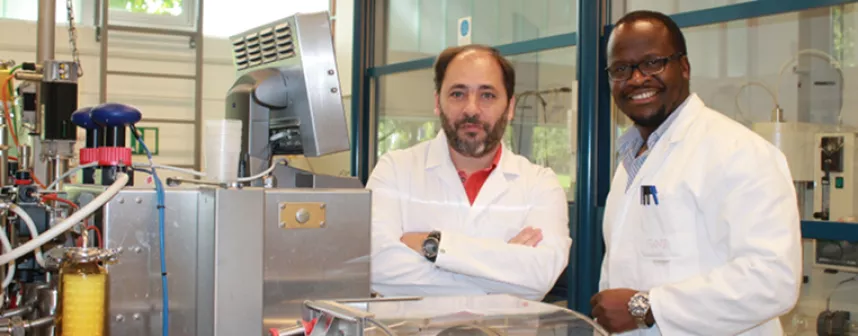Making better use of enzymes: a new research project at Jacobs University
September 18, 2018
In biocatalysis, enzymes are used to accelerate chemical reactions. This plays a role in many areas, such as the production of beer, wine, and cheese or the pharmaceutical industry. A research project at the English-medium Jacobs University led by Marcelo Fernandez-Lahore, Professor of Biochemical Engineering, aims to create a novel platform for facilitating the further processing of a wide range of biological products. “Our Nanofacil project will drastically simplify the application and implementation of biocatalytic processes in industrial practice,” says Fernandez-Lahore.
Enzymes enable important (industrial) chemical transformations under very mild conditions. Companies need fewer organic solvents and hazardous chemicals, and their energy consumption is reduced. The use of enzymes, therefore, leads to more sustainable industrial practices. In particular, there is an increased demand for enzymes in the production of pharmaceuticals, flavors, fragrances, and polymers.
Some time ago, scientists at Jacobs University developed a new way to apply the use of enzymes to industrial processes. This process is known as “nanoformulation”. Most enzymes are proteins; under production conditions they become unstable. “Nanoformulation” makes enzymes more resistant and improves safety in production. The “Nanofacil” project follows on from this research. It is funded by the Central Innovation Program for SMEs of the Federal Ministry of Economics and Energy with around 175,000 euros over a period of three years. Two industrial partners from Germany and Finland are also involved.
Questions will be answered by:
Prof. Dr. Marcelo Fernandez-Lahore | Professor for Biochemical Engineering
m.fernandez-lahore [at] jacobs-university.de | Tel.: +49 421 200-3239
